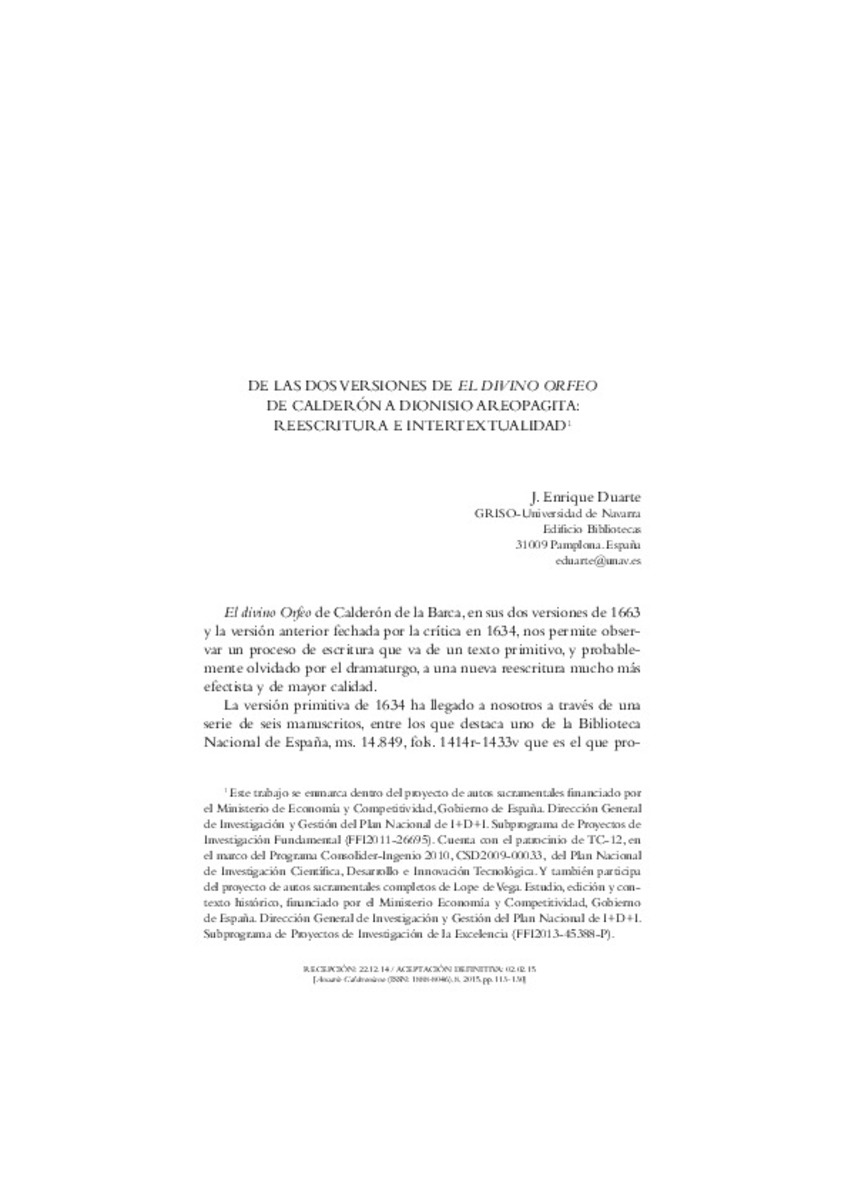De las dos versiones de "El divino Orfeo" de Calderón a Dionisio Areopagita: reescritura e intertextualidad
Keywords:
Materias Investigacion::Filología y Literatura
Dionisio Areopagita
Intertextualidad
El divino Orfeo
A Dios por razón de Estado
Dionysius the Areopagite
Intertextuality
Publisher:
Iberoamericana/Vervuert
Citation:
Duarte, J. Enrique, «De las dos versiones de “El divino Orfeo” de Calderón a Dionisio Areopagita: reescritura e intertextualidad», Anuario Calderoniano, 8, 2015, pp. 113-130.
Statistics and impact
0 citas en

0 citas en

Items in Dadun are protected by copyright, with all rights reserved, unless otherwise indicated.








